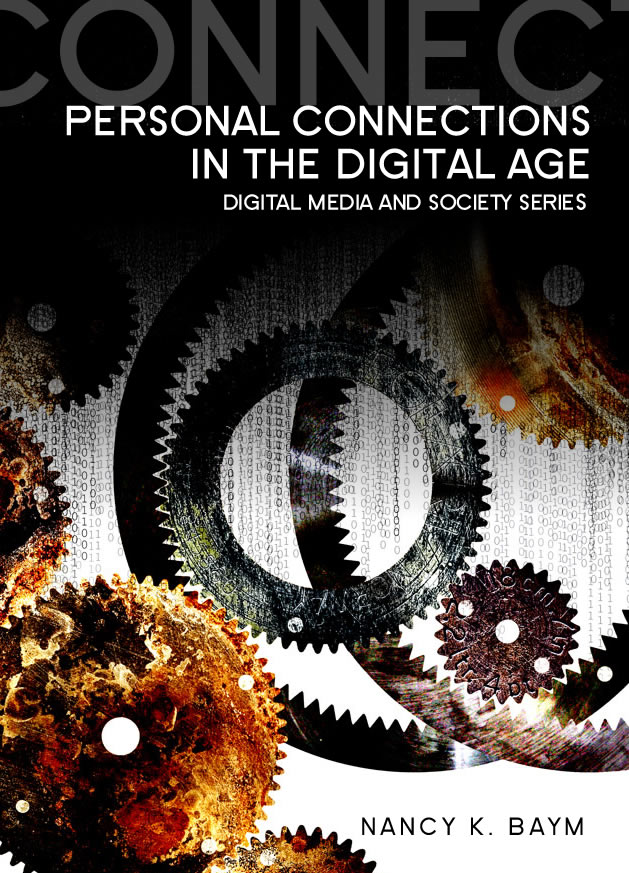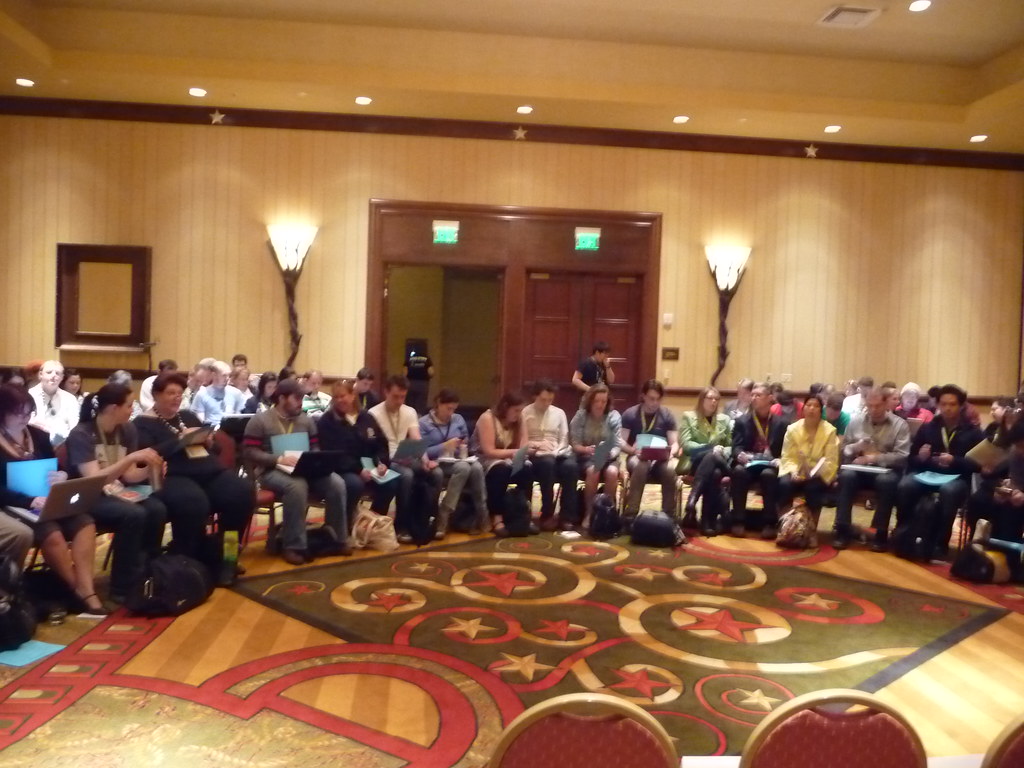Why, despite myself, I am not leaving Facebook. Yet.
Thursday, May 13, 2010
As my Facebook friends and Twitter followers know, like many others I’m angry at Facebook. I haven’t written a blog post about it because so many others have been making most of my points so eloquently (forgive me for not linking to them). But I relent, and here it is anyway, in the form of responses to the criticisms of criticism that I keep hearing:
(1) Twitter’s public, where’s the rage against Twitter?
Here’s the difference, and it’s a big one: When I signed up for Twitter, like everyone else who signed up for a public Twitter account, I knew it was public. There was an easy box to click: private or public? It said right there that if I chose private my tweets wouldn’t appear in the public timeline. Now there may be some users who didn’t infer that if they picked public, their tweets would appear in that timeline, but Twitter was always above board from the start that a public twitter account meant decontextualized public display and searchability of your tweets. That has never changed. Some whom I really respect are upset with the Library of Congress archiving tweets, but I view the Library of Congress as a very different entity from the unknown agencies to whom Facebook sells our data and don’t think a tit-for-tat comparison makes sense.
When I signed up for Facebook in early 2006, it boasted of its strong privacy, of my ability to control who saw what. I used it as a place to share things I didn’t want publicly searchable. Now I’ve been teaching about the internet long enough to know not to post things anywhere that I don’t want in the newspaper, but it nonetheless felt like a safe place to target messages toward a known audience rather than the hundreds of strangers who follow me on Twitter.
And then they changed the rules. Regularly. Repeatedly. And every time they did it required more research to understand what they’d done and more unclicking to preserve the premises they’d offered when I signed up. I was President of The Association of Internet Researchers, I read articles about Facebook every day, I check my settings regularly, and I still can’t keep up and I still get confused.
Facebook has engaged in a bait and switch. They promised privacy, they encouraged us to invest our data in it and build connections on that premise, and then, when we had built networks that really mattered to us, they changed the rules. Which brings me to…
(2) If you think it’s so evil, just leave.
Don’t think I don’t think about it. Every day. I look with admiration and envy on my friends who have left. I’ve also watched sadly as several have returned. And I note above all that very few of my friends, who by nature of our professional connections are probably more attuned to these issues than most, have left. I don’t like supporting Facebook at all. But I do.
And here is why: they provide a platform through which I gain real value. I actually like the people I went to school with. I know that even if I write down all their email addresses, we are not going to stay in touch and recapture the recreated community we’ve built on Facebook. I like my colleagues who work elsewhere, and I know that we have mailing lists and Twitter, but I also know that without Facebook I won’t be in touch with their daily lives as I’ve been these last few years. I like the people I’ve met briefly or hope I’ll meet soon, and I know that Facebook remains our best way to keep in touch without the effort we would probably not take of engaging in sustained one-to-one communication.
I know that I don’t NEED these little interactions but I also know that I like them very much and that my daily life would be less fun without them. The rewards of Facebook are concrete and immediate. The costs are abstract and ideological. When I try to balance the two, the rewards win, but that is because of my friends and despite Facebook. It is not evidence that Facebook is acting appropriately. Telling people with complaints to leave ignores the very real value of the networks they have built and what should be their right to continue those networks on the grounds on which they were built.
(3) Facebook needs to make money.
I agree. Facebook should make money. But I have yet to hear a convincing case that their strategy of itemizing every bit of data we give them, repackaging it into groups of people into that thing or into profiles they can sell for advertising purposes is the best way to do this. I haven’t heard compelling arguments that it is the only way to do this. What I hear is “Facebook needs to make money. Facebook thinks they can make money this way. Ergo, this is the way Facebook can make money.” You know, I’d gladly pay a subscriber fee to opt out of being data mined, though I wouldn’t propose it as a sole solution since it would mean privacy is only for people who can afford it. It is sad that such creative minds can only think of one business model. Where’s the innovation?
(4) If you don’t want it shared, don’t share it.
Setting aside the assumptions of privilege that this claim entails (like the legitimate safety of marginalized and oppressed people who should have a right to affiliate though social networking sites without fear of being identified as dissidents, GLBT, etc), ‘if you don’t want to share it, don’t post it’ completely misses the point. The willingness to disclose all our data to marketers should not be required to socialize. Imagine if AT&T said “we’re going to track all your calls and all your networks and we’re going to store keywords you mention and personal connections in your profile we’ll sell to others so we can insert ads before and after your phone calls. And if your friend calls from another carrier, we’ll share that data with their carrier too.” People would be mortified, legislators would snap to attention, and most users would probably switch carriers. But there is no other Facebook. We can’t switch carriers. We can only give up what we have now and go back to what we had before. You might say, “but you pay for AT&T” which brings me back to #3: Paying for Facebook with money is not an option.
So for now I’ve decided I am better off fighting the system from within. I AdBlock the ads, I have removed almost all my connections. My info is nearly empty. My settings are as locked down as I can figure out how to make them. Like many of my friends, my contributions to the site are increasingly pithy. Most of my posts these days serve to inform my friends who are not obsessed with the ethics of Facebook about what bad behaviors they’re up to this week. Using Facebook with the rules I signed on for makes me a subversive user. That’s wrong.
What I want is a Facebook that is premised on a belief that first and foremost human relationships are valuable and sacred, not the ground on which money trees grow, but that if the value of relationships is genuinely nurtured, there will be ways to earn money.
I want a Facebook that really believes that people have a right to select how their information will be shared, instead of a belief that they’re too dumb to figure it out if the settings are too confusing so it’s okay to dupe them.
I want a Facebook that can find creative ways to make a profit using the rules they originally set for their own game.
I want an ethical Facebook.
That shouldn’t be too much to ask.
Update: You can hear me discuss this more on WNYC’s The Brian Lehrer Show. There’s a stream, an mp3, a discussion, and more.
Note: This is closed for comments and trackbacks on account of spam deluges. If you want to post a real comment, please email it to me.




